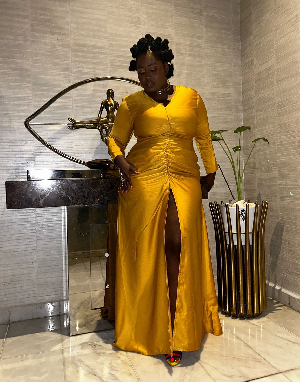
Ghanaian actress and social activist Lydia Forson has advised Ghanaians to take charge of their votes and select candidates based on their own reflection and comprehension of the needs of the nation, according to a report from mynewsgh. Forson, who is well-known for her candid opinions on social issues, stressed that voters shouldn't depend on outsiders or influencers to tell them who to support in the next elections.
Forson told her followers in a tweet that she thought voting should be a personal choice based on each person's evaluation of their life and the difficulties facing the nation. "Hey, nobody has to tell you who to vote for in this election or any other. Take some time to reflect on your life and yourself, then cast your vote appropriately. That's how easy it is. She wrote, "I mean, you shouldn't be voting if you need me to do that for you."
She made these comments prior to Ghana's important national elections on December 7, 2024. Ghanaians will choose a new president and members of parliament in the election to guide the nation through the next stage of its growth. As the electorate gets ready to choose between the major political parties, Forson's call is indicative of a larger national discussion about the significance of voting with knowledge.
In Ghanaian politics, power has alternated between the two major parties for eight years, but the incumbent New Patriotic Party (NPP) is aiming to win a historic third straight term. Notwithstanding complaints about the nation's current economic difficulties, President Nana Akufo-Addo's NPP seeks to uphold its legacy and carry on its governing model.
However, Ghana's largest opposition party, the National Democratic Congress (NDC), is adamant about regaining power. Under the direction of former president John Dramani Mahama, the NDC contends that they are the key to releasing Ghana's potential and resolving the social and economic challenges the nation is currently facing.
By making sure that their selections represent their own beliefs and goals for the future of the nation, voters are increasingly being urged to be more proactive in their decision-making process, which Forson's statement supports. Insisting that Ghanaians examine themselves and base their choices on sound judgment, she emphasizes the significance of personal accountability in determining the political climate of the country. Forson's statement strikes a chord with many as the election date draws near because they think that an informed and involved electorate holds the key to Ghana's future. Her exhortation to cast your ballot based on your own reflections is a crucial addition to the nation's current political conversation, regardless of whether voters take her call for introspection seriously.